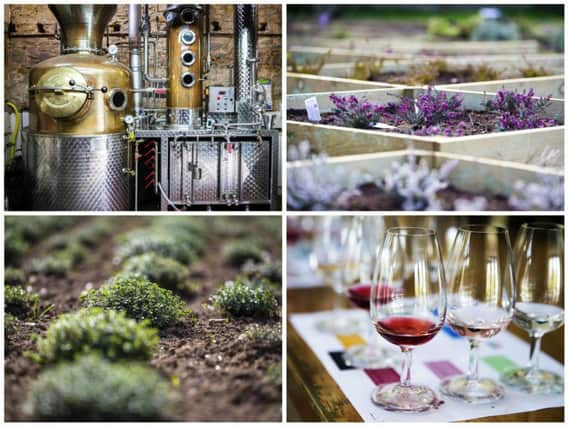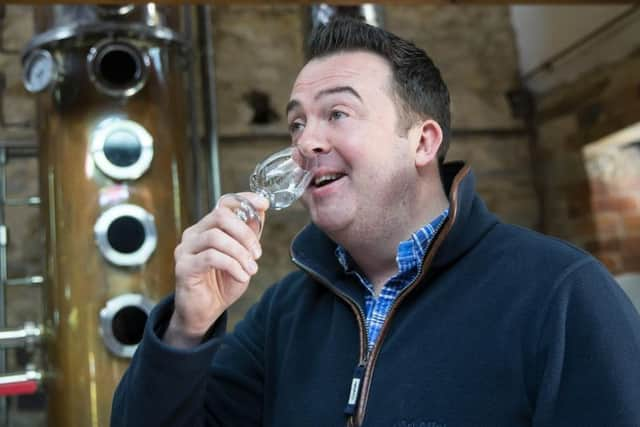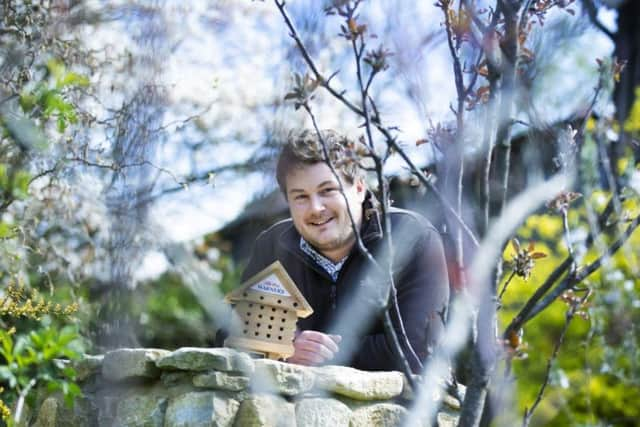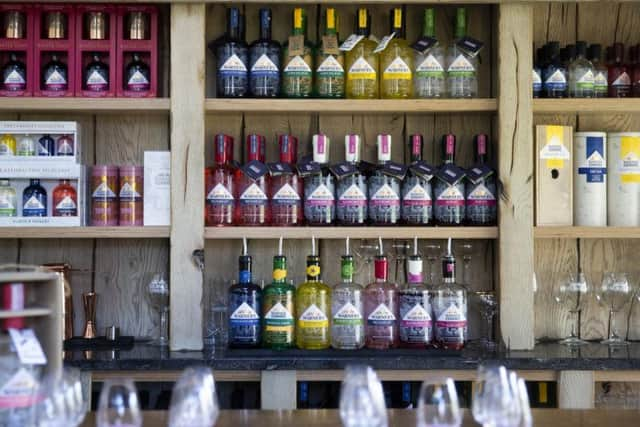Behind the scenes at a real Northamptonshire success story


And, it turns out, it's too cold for the bees also.
The distillery's founder Tom Warner has just offered us the chance to put on a beekeeper's suit in order to get closer to the hives and the honey used in Warner's honeybee gin.
Unfortunately, after consulting with resident beekeeper and Warner's conservation and sustainability manager Jonny Easter, we're told it's a couple of degrees too chilly for the insects, so we continue our tour of the botanical gardens.


“We call it graft gin, not craft gin,” says Tom.
Advertisement
Hide AdAdvertisement
Hide AdEach bottle of Warners is the result of year-round hard work at the farm.
What they harvest Warner's use to flavour their Northamptonshire-made premium gins.
The idea to create a premium gin came after Tom researched farm diversification while looking at different ways to make money from his land.


“We bought the still and first used it to make essential oils,” said Tom.
Advertisement
Hide AdAdvertisement
Hide Ad“But we realised we had the still just sitting there for the rest of the year.
“So then we got excited about making gin.”
Tom and his team settled on gin because not only did they enjoy it, it also doesn’t require ageing in barrels like whisky and dark rum.


Furthermore, at the time Warner's started making gin in 2012 the spirit was enjoying a revival.
In 2018, sales of gin were three times higher than in 2009, the year this most recent 'gin craze' began.
Advertisement
Hide AdAdvertisement
Hide AdThat renewed interest in the alcohol once dubbed "mother's ruin" fuelled a surge in new distilleries.
HM Revenue and Customs and the Wine and Spirits Trade Association figures showed that 315 were in operation in 2018 - more than double the number in 2013.
This crowded market has led consumers to refine their tastes and look for particular gins, ones that are handcrafted and different from the usual suspects.
And for Warner's, that means being sustainable and using what they produce at Falls Farm to make their gin.
Advertisement
Hide AdAdvertisement
Hide AdTheir lemon balm gin, for example, is made with three separate kinds of botanicals (lemon balm, lemon verbena and lemon thyme) planted in the garden Tom showed us around in the morning.
There are no synthetic flavours used in any step of the production of their booze, unlike in other bigger name brands.
The flowers and plants are handpicked and even the water mixed in with the 96-proof ethanol at the start of the distilling process is from a spring on Falls Farm.
“It’s hard to produce but it gives us a quality product,” said Tom.
Advertisement
Hide AdAdvertisement
Hide AdConscious of the fact that to make their gin they need to take from nature, Warner's have adopted a sustainable model in order to give back to the ecosystem that gives them so much.
For example, each bottle of their honeybee gin comes with a packet of wildflower seeds to plant in a bee-friendly garden to help save the animals.
They're also sending out 1,000 bee hotels to be placed along flight insect paths to help them.
"It's about really trying to make a difference and be sustainable," said Tom.
Advertisement
Hide AdAdvertisement
Hide Ad"There's a symbiotic relationship between flavour and giving back to the environment."
And that relationship appears to be a happy one; Warner's business is booming and their products have collected awards at shows worldwide.
Notably, at the 2018 San Francisco World Spirits Competition, their dry gin won gold, their lemon balm and honeybee gins both won silver, and their pink rhubarb gin and their elderflower gin won bronze.